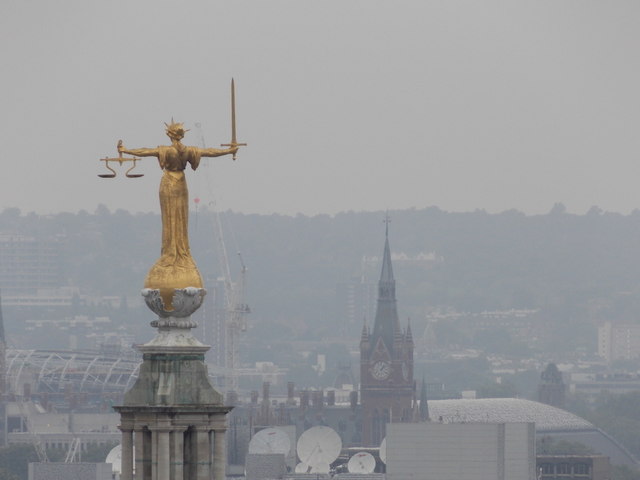Author: Abhishek Chansoria, (2nd Year student of IIT Kharagpur Law School)
Amid
the chaotic and inefficient Parliament’s monsoon session, some key legislation
could not see the light of the day. Shadowed under the highly debated GST Bill
or the Land Acquisition Bill was the Compensatory Afforestation Fund Bill, 2015.
The
Hon'ble Supreme Court in its order in GodavarmanThirumulpad v. Union of India [Writ Petition (C) No. 202 of 1995], dated
30th October, 2002, observed that a Compensatory Afforestation Fund may be
created in which all the monies received from the user agencies shall be
deposited which shall be utilized for plantations, protection of forests,
wildlife protection and other related activities.
Source: wikimedia.org (labeled for reuse)
By
introducing additional compensatory afforestation on the parties using the
diverted forest land for non-forest use under the Forest (Conservation) Act,
the bill envisages to create a mechanism to give tangible compensation to the
forest cover and the nature.
Interestingly,
a temporary structure created by the Supreme Court namely the ad hoc
Compensatory Afforestation Fund Management and Planning Authority (CAMPA) has
an unspent amount of more than Rs. 3,80,00,00,00,000/- (Thirty Eight Thousand Crores).
With
the provisions for constitution of two authorities, at the National and State
level, the Bill seems very promising. The National CAMPA consists of an
Executive Committee and a Monitoring Group and the State CAMPA would have a
Steering Committee and an Executive Committee. The most effective part of the
whole act seems to be the constitution of these committees which is done under
Section 8, 9, 10 and 11 of the Bill. With the emanation of the environmental
jurisprudence in India, several authorities have been constituted. The
above-referred sections name heads of various authorities, initiatives and started
by the Government along with the inclusion of environmentalists and NGOs.
The
Bill delegates the powers to make rules regarding the investment of the monies
in the Fund to the National and State Authority along with the provisions for
audit by the Comptroller and
Auditor General (CAG) of India.
The
Bill recognizes it to be a key authority which is reflected by its
constitution. The provisions for striving for working with transparency and
accountability are included in the Bill.
As
it has not yet passed by the Parliament, some of the issues which are prima
facie evident in the Bill could be addressed for avoiding future ambiguity.
One
of the issues which are not included in the Bill is the jurisdiction of the courts
in the matter of disputes. The investments might also include the investments
in more than one state. Disputes arising out of these arrangements logically
seem to be addressed under Article 131 of the Constitution but whether the
National Green Tribunal should have any say in these or any other disputes is
yet to be answered under the legislation.
Another
key issue is the procedure for disqualification and the nature of enquiry which
should be followed. The Bill does talk about who would be disqualified to be a
member of any of the two authorities but the procedure of determining the same
is yet to be formulated.
This
is a key piece of legislation which has taken another step towards
environmental protection by including affirmative and compensatory actions. The
Supreme Court has done a commendable job by taking up this issue and giving
necessary guidelines which have been well reflected in the proposed Bill. Only
if good intentions could lead to good governance, hence, proper execution of
the Bill is important. It could either be another one of the Act which only has
‘environment protection’ in its objectives or could be a reason for a watershed
event to finally address the issue substantially.
Disclaimer: This blog or any post thereof is not to be considered to be in any way associated with the official stand of IIT kharagpur or RGSOIPL on the issues being discussed in the said post. The opinions on the blog are the authors own and should not be considered as legal advice.














